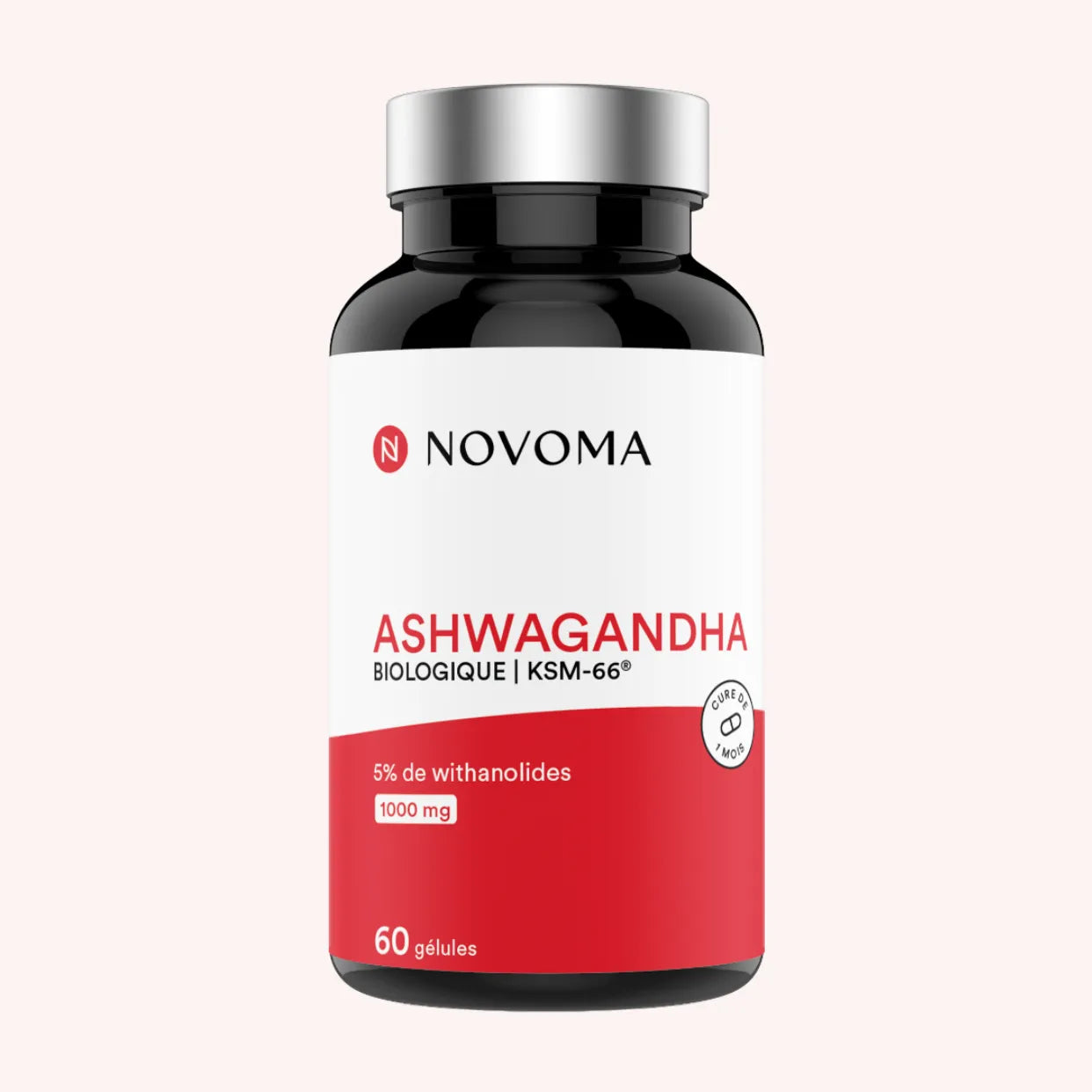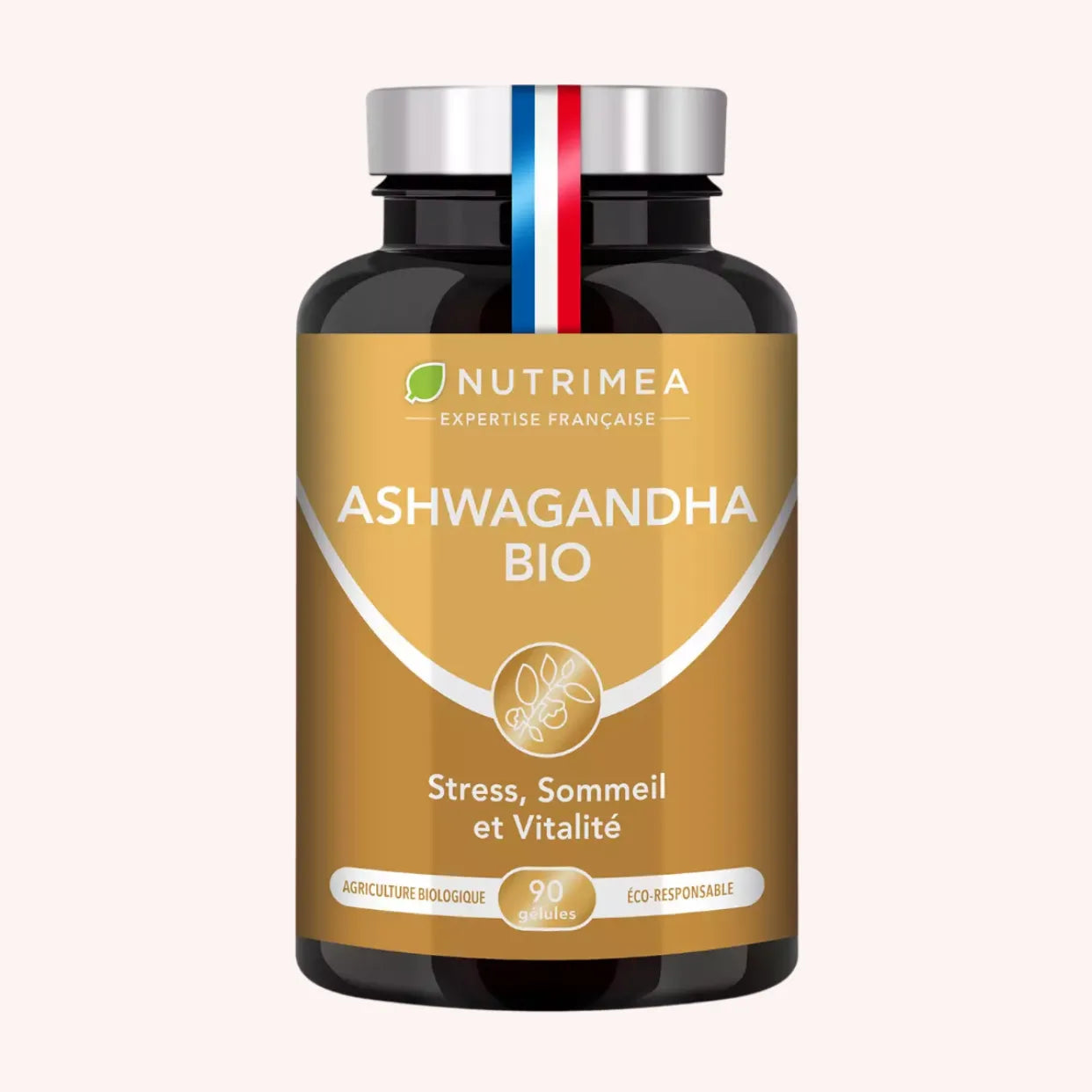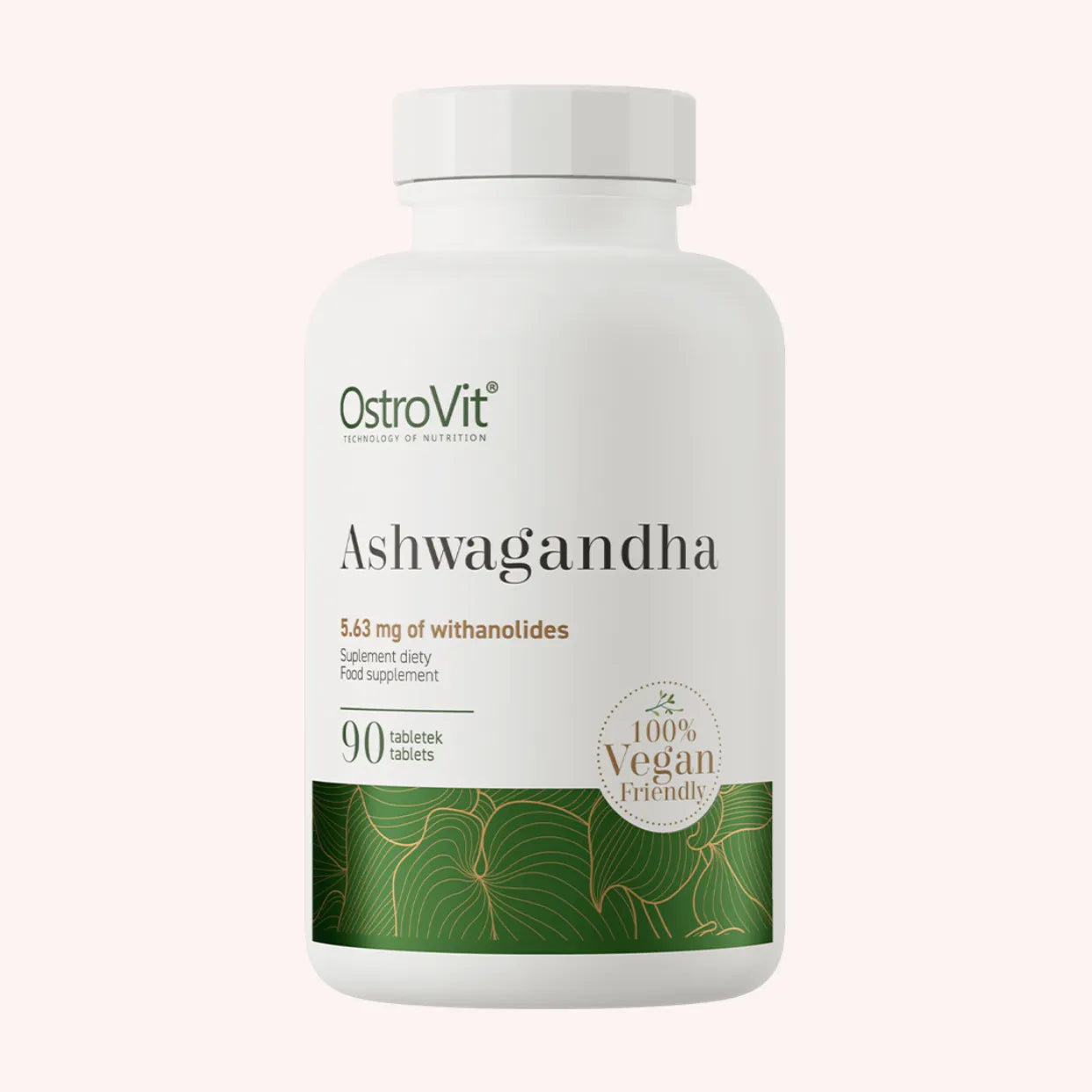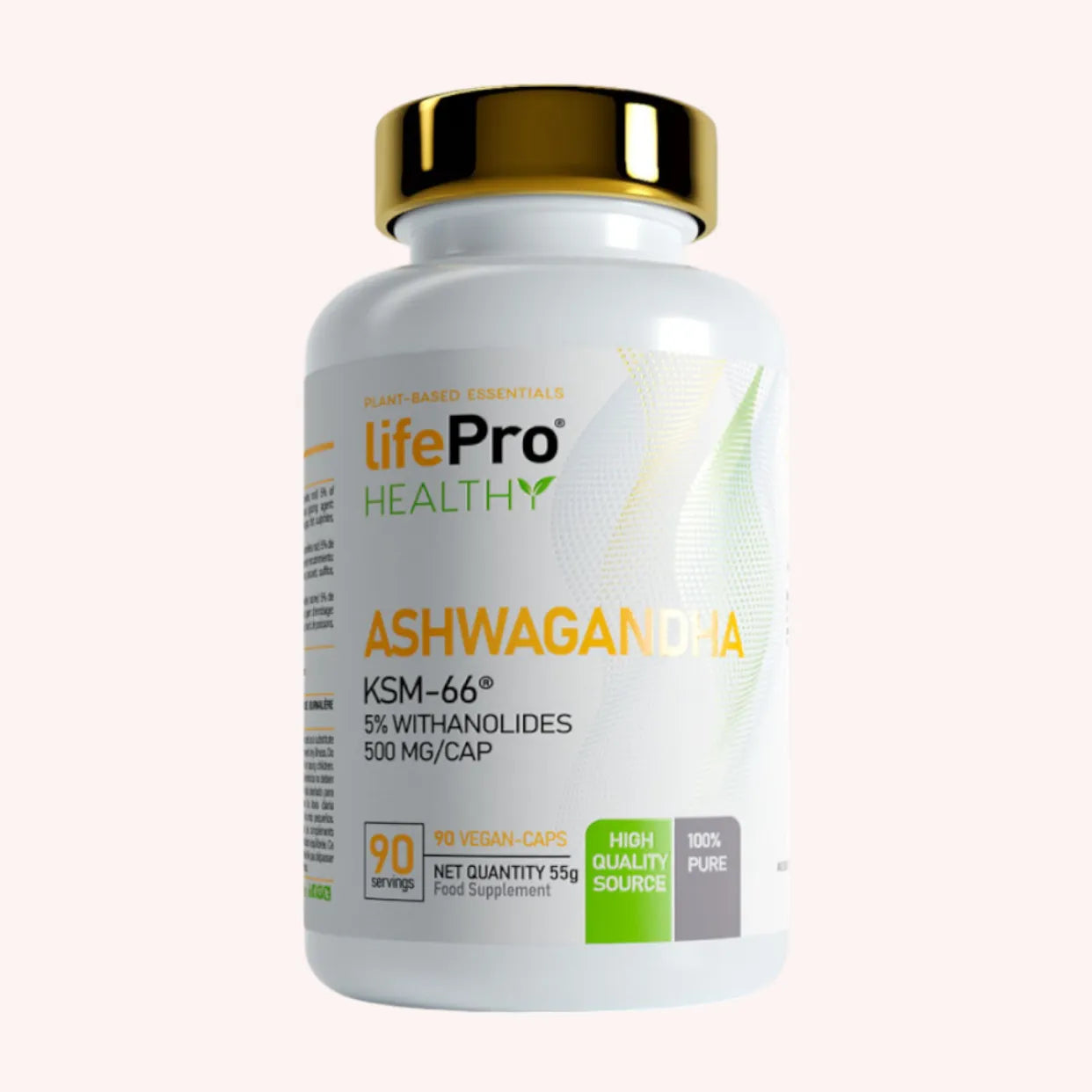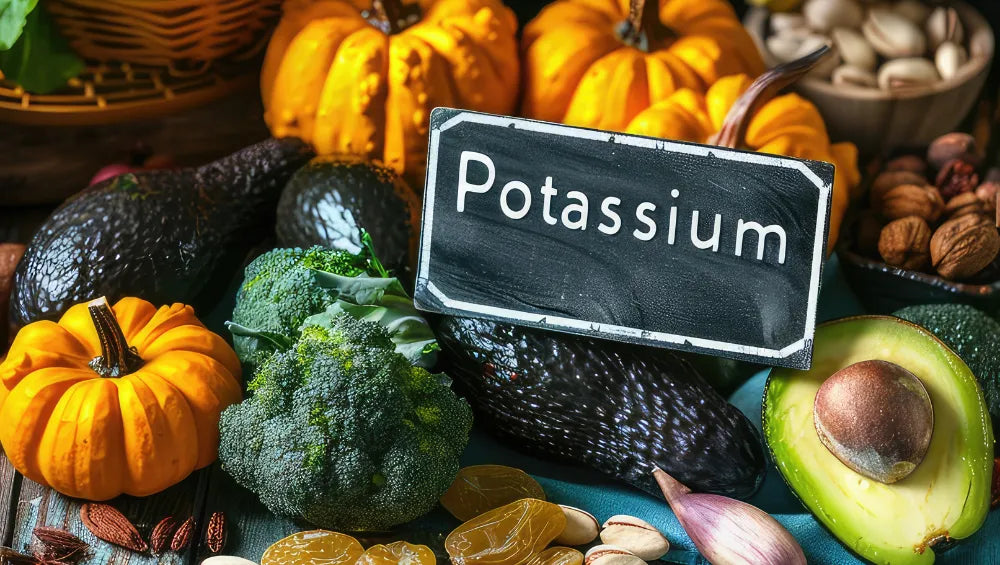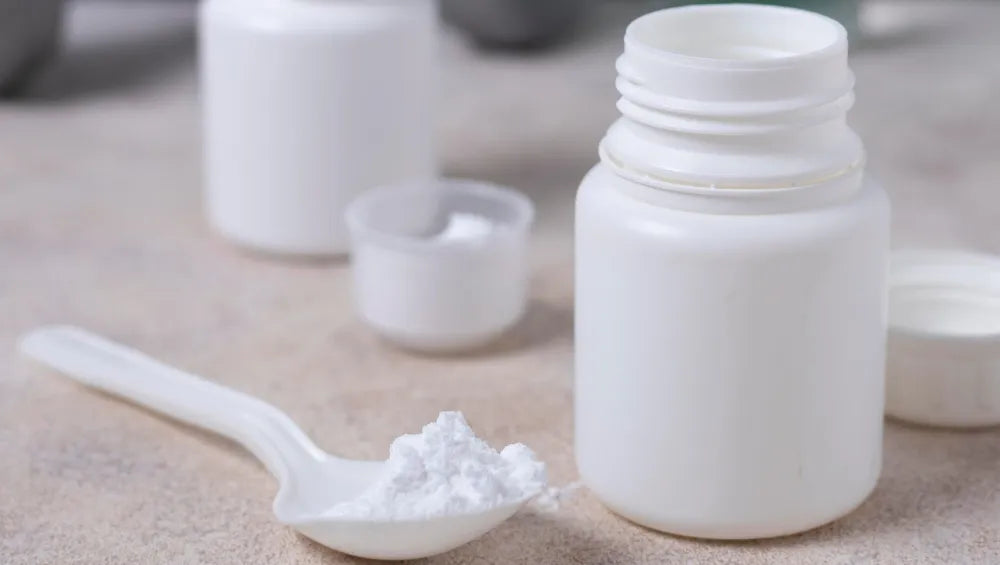Ashwagandha, scientifically known as Withania somnifera , is an adaptogenic herb native to India that has been used for millennia in Ayurvedic medicine .
This plant is particularly renowned for its multiple health benefits, especially for athletes and bodybuilding enthusiasts. Here, we will explore in detail the benefits of ashwagandha , its mechanisms of action and how it can be incorporated into your fitness routine to optimize your performance and recovery.
Origins and composition of ashwagandha
Origins
Ashwagandha is a medicinal plant that has been used for thousands of years in traditional Indian medicine , Ayurveda. It grows primarily in the arid regions of India and is often referred to as " Indian ginseng " because of its adaptogenic properties similar to those of Asian ginseng.
Used for its regenerative and toning properties, it is now recognized worldwide for its benefits.
Composition
The main parts of the plant used are the roots and leaves. Ashwagandha contains several bioactive compounds, including withanolides, alkaloids, and saponins.
Withanolides are the main compounds responsible for ashwagandha's beneficial effects. They possess adaptogenic and anti-inflammatory properties.
The benefits of ashwagandha
Improved endurance
Ashwagandha is known to improve physical endurance. Numerous studies have shown that its consumption significantly increases VO2 max, a key indicator of aerobic endurance.
VO2 max represents the maximum amount of oxygen the body can use during exercise. A high VO2 max will allow you to maintain intense efforts for longer, thus improving your overall performance.
Development of muscular strength
Ashwagandha also builds muscle strength. One study found that participants who consumed ashwagandha experienced significant gains in muscle strength, as measured during exercises like bench presses and leg extensions.
These effects are attributed to the anabolic properties of withaferin A, an active component of the plant, which promotes protein synthesis and muscle growth.
Mechanisms of Action
The mechanisms of action that allow ashwagandha to increase muscle strength are still being studied. However, it is suggested that these mechanisms are related to the antioxidant properties of the plant.
The antioxidants in ashwagandha reduce oxidative damage caused by intense exercise, allowing for better recovery and increased muscle strength.
Acceleration of muscle recovery
Ashwagandha's ability to reduce oxidative stress and muscle inflammation makes it an ideal health supplement for post-exercise recovery. Studies have shown that athletes consuming ashwagandha recover faster after intense exercise, thanks to a decrease in muscle damage markers such as creatine kinase.
By facilitating recovery, ashwagandha allows athletes to train more frequently and intensely.
Reduction of stress and anxiety
Ashwagandha is also known for its calming effects on the nervous system . It helps regulate levels of the stress hormone cortisol, which significantly reduces anxiety.
Various clinical trials have shown that consuming ashwagandha reduces symptoms of stress and anxiety, promoting a more stable and serene mental state.
Improved sleep quality
By regulating cortisol levels and promoting relaxation, ashwagandha helps improve sleep quality . Restful sleep is essential for muscle recovery and athletic performance.
Athletes consuming ashwagandha have reported improvements in the quality and duration of their sleep, which optimizes their ability to recover from intense workouts.
Testosterone stimulation
Ashwagandha also has positive effects on reproductive health. Studies have shown that this herb supports testosterone levels in men, which can improve fertility and sexual health.
Additionally, ashwagandha can increase sperm count and motility, contributing to better male fertility.
Directions for use
Recommended dosage
For athletes, the recommended dose of ashwagandha generally ranges from 500 mg to 1,250 mg per day , depending on individual needs and goals.
We recommend starting with a lower dose and gradually increasing it.
Forms of consumption
Ashwagandha can be consumed in different forms, including powder, capsules, or infusion.
The powder can be added to smoothies, juices, or other energy drinks. Capsules offer a convenient option for those who prefer precise and consistent dosing.
Precautions
Although ashwagandha is generally considered safe, it is important to consult a healthcare professional before starting any supplementation, especially for people taking medications or with specific medical conditions.
It is also not recommended to consume ashwagandha during pregnancy or breastfeeding.
Traditional Uses of Ashwagandha
Strengthening the immune system
While ashwagandha is traditionally used for its calming effects on the nervous system , it has also long been known for its immunomodulatory properties, which strengthen the immune system .
The compounds in ashwagandha act as antioxidants, helping to neutralize free radicals and protect cells from damage.
Improved cognitive function
Studies suggest that ashwagandha may support cognitive function by improving memory and concentration.
The bioactive compounds in ashwagandha are believed to protect nerve cells from oxidative damage, thereby promoting brain health.
How to choose the best ashwagandha?
With so many products available on the market, choosing a quality ashwagandha can be more complicated than expected.
In order to maximize its effects and ensure your safety, here are the criteria you must take into account.
Origin
The origin of ashwagandha can influence its quality. Regions like India, where ashwagandha is traditionally grown, are often considered the best sources. Look for products that clearly state their origin.
Cultivation method
Choose organic products. Organic ashwagandha is grown without pesticides or herbicides, reducing the risk of contamination from harmful chemicals. Look for certified organic labels on the packaging.
Parts of the plant used
The most commonly used and studied part of ashwagandha is the root, known for its high concentrations of withanolides, the active compounds responsible for the plant's benefits.
Some products may also contain leaves, but roots are generally preferred for maximum effectiveness.
Withanolide concentration
Look for products standardized in withanolides. A good ashwagandha product should contain between 2.5% and 10% withanolides.
This standardization guarantees a constant concentration of active compounds, thus ensuring optimal efficacy and safety.
Different product shapes
Powder
Ashwagandha powder can be added to smoothies, juices, or teas. Make sure it is pure and free of additives.
Capsules
Capsules offer a convenient and precise way to consume ashwagandha. They are ideal for those who prefer easy and consistent dosing.
Liquid extracts
Liquid extracts are often more concentrated than powders and capsules, offering faster absorption. They can be added to drinks or taken directly.
Quality testing and certifications
Laboratory tests
Check if the product has been tested by independent laboratories to verify its purity, withanolide concentration, and the absence of contaminants such as heavy metals and pesticides.
Laboratory test results should be available on the manufacturer's website or upon request.
Certifications
Look for quality certifications like organic, GMP ( Good Manufacturing Practices ), or NSF ( National Sanitation Foundation ) labels, which indicate high standards of production and purity.
User reviews and brand reputation
User reviews
Read user reviews to get an idea of the product's effectiveness and quality. Reviews may also reveal information about potential side effects.
Brand reputation
Choose recognized and well-established brands in the field of nutritional supplements.
A good reputation often means quality products and reliable customer service.
Absence of additives and fillers
Make sure the product does not contain any unnecessary additives, fillers, or preservatives. A high-quality product should be as pure as possible.
Cost and value for money
Price comparison
Compare prices between different brands and products. Keep in mind that high-quality products may be more expensive, but they generally offer better effectiveness and safety.
Quantity per dose
Consider the amount of ashwagandha per dose to assess value for money. Sometimes a cheaper product may require a larger amount to achieve the same effects, making a seemingly more expensive product more cost-effective in the long run.
Ashwagandha is a plant with many benefits for your health, both for its physical and mental effects.
When it comes to bodybuilding, ashwagandha can be a valuable supplement to enhance performance and results. By promoting strength gains, improving muscle recovery, and increasing VO2 max capacity, ashwagandha helps you reach your goals faster.
However, it's important to note that the exact mechanisms by which ashwagandha affects these aspects are not yet fully understood. Further research is needed to confirm these effects with certainty. Therefore, we recommend trying ashwagandha supplementation and consulting a healthcare professional to determine the ideal dosage and duration of your treatment.
Sources:
- Chandrasekhar K, Kapoor J, Anishetty S. A prospective, randomized double-blind, placebo-controlled study of safety and efficacy of a high-concentration full-spectrum extract of ashwagandha root in reducing stress and anxiety in adults. Indian J Psychol Med. 2012;34(3):255-262. doi:10.4103/0253-7176.106022 : https://pubmed.ncbi.nlm.nih.gov/23439798/
- Choudhary D, Bhattacharyya S, Bose S. Efficacy and Safety of Ashwagandha (Withania somnifera (L.) Dunal) Root Extract in Improving Memory and Cognitive Functions. J Diet Suppl. 2017 Nov 2;14(6):599-612. doi:10.1080/19390211.2017.1284970. Epub 2017 Feb 21. PMID: 28471731. : https://pubmed.ncbi.nlm.nih.gov/28471731/
- Vetvicka V, Vetvickova J. Immune enhancing effects of WB365, a novel combination of Ashwagandha (Withania somnifera) and Maitake (Grifola frondosa) extracts. N Am J Med Sci. 2011 Jul;3(7):320-4. doi: 10.4297/najms.2011.3320. PMID: 22540105; PMCID: PMC3336880. : https://pubmed.ncbi.nlm.nih.gov/22540105/
- Lopresti AL, Drummond PD, Smith SJ. A Randomized, Double-Blind, Placebo-Controlled, Crossover Study Examining the Hormonal and Vitality Effects of Ashwagandha (Withania somnifera) in Aging, Overweight Males. Am J Mens Health. 2019 Mar-Apr;13(2):1557988319835985. doi:10.1177/1557988319835985. PMID: 30854916; PMCID: PMC6438434. : https://pubmed.ncbi.nlm.nih.gov/30854916/
- Ahmed W, Mofed D, Zekri AR, El-Sayed N, Rahouma M, Sabet S. Antioxidant activity and apoptotic induction as mechanisms of action of Withania somnifera (Ashwagandha) against a hepatocellular carcinoma cell line. J Int Med Res. 2018 Apr;46(4):1358-1369. doi:10.1177/0300060517752022. Epub 2018 Feb 2. PMID: 29392963; PMCID: PMC6091842. : https://pubmed.ncbi.nlm.nih.gov/29392963/
- Bonilla DA, Moreno Y, Gho C, Petro JL, Odriozola-Martínez A, Kreider RB. Effects of Ashwagandha (Withania somnifera) on Physical Performance: Systematic Review and Bayesian Meta-Analysis. J Function Morphol Kinesiol. 2021;6(1):20. Published 2021 Feb 11. doi:10.3390/jfmk6010020 : https://pubmed.ncbi.nlm.nih.gov/33670194/
- Pérez-Gómez J, Villafaina S, Adsuar JC, Merellano-Navarro E, Collado-Mateo D. Effects of Ashwagandha (Withania somnifera) on VO2max: A Systematic Review and Meta- Analysis. Nutrients . 2020;12(4):1119. Published 2020 Apr 17. doi:10.3390/nu12041119 : https://pubmed.ncbi.nlm.nih.gov/32316411/
- Raut AA, Rege NN, Tadvi FM, et al. Exploratory study to evaluate tolerability, safety, and activity of Ashwagandha (Withania somnifera) in healthy volunteers . J Ayurveda Integra Med. 2012;3(3):111-114. doi:10.4103/0975-9476.100168 : https://pubmed.ncbi.nlm.nih.gov/23125505/
- Wankhede S, Langade D, Joshi K, Sinha SR, Bhattacharyya S. Examining the effect of Withania somnifera supplementation on muscle strength and recovery : a randomized controlled trial . J Int Soc Sports Nutr. 2015;12:43. Published 2015 Nov 25. doi:10.1186/s12970-015-0104-9 : https://pubmed.ncbi.nlm.nih.gov/26609282/





